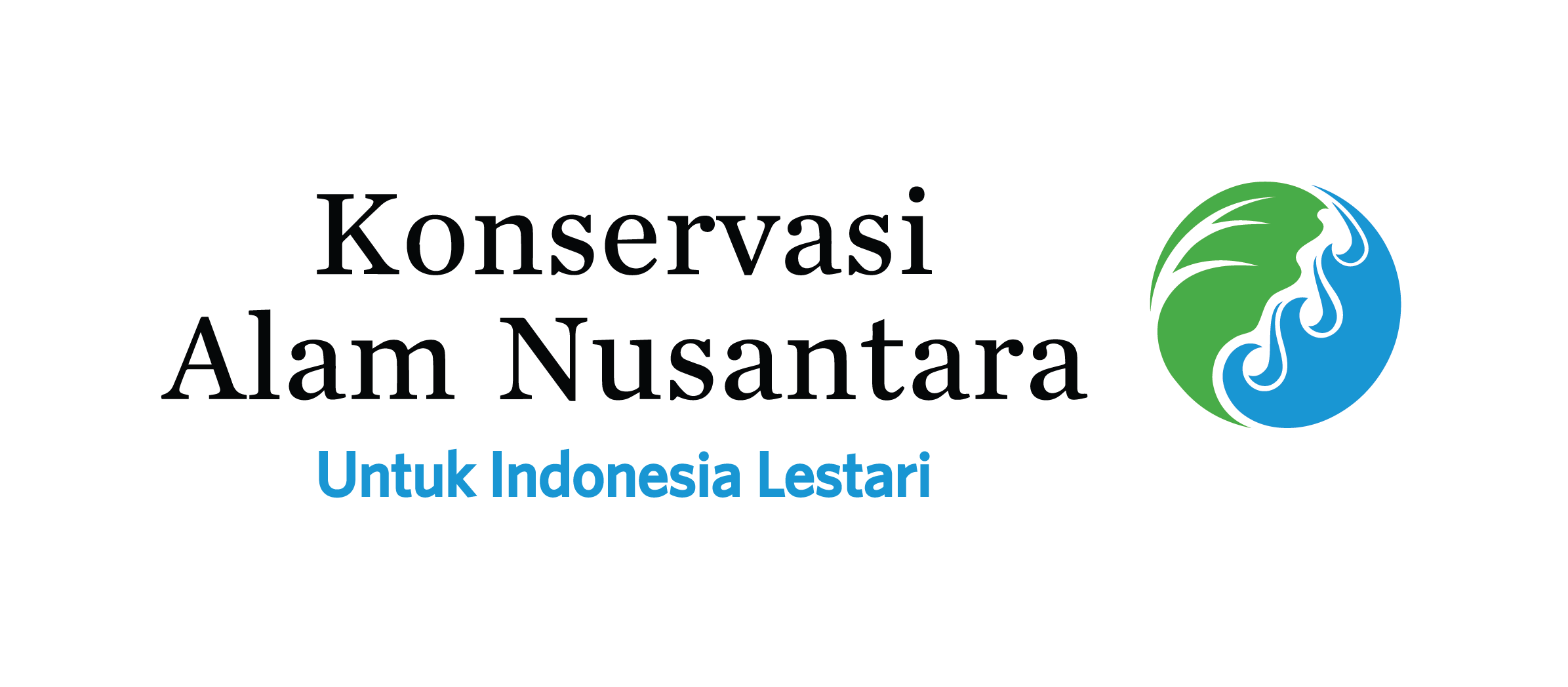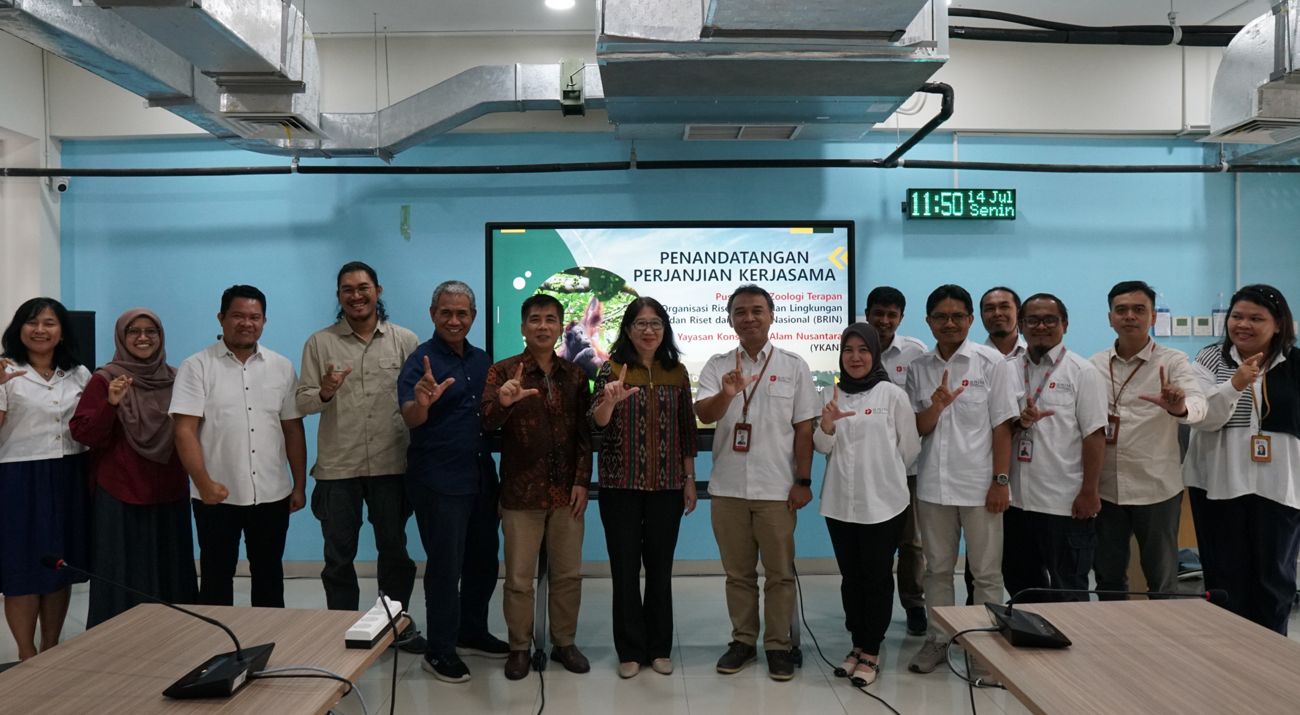
Media Contacts
-
Retno Sari
Content and Publication Specialist YKAN
Yayasan Konservasi Alam Nusantara
Email: retno.dianingsari@ykan.or.id
National Research and Innovation Agency (BRIN) has initiated a collaboration for the research of rare and endangered wildlife with the Nusantara Nature Conservation Foundation (YKAN) this year. "Through this collaboration, we hope to uncover scientific facts, research findings, and recommendations related to the ecology of tropical forests and wildlife to support management in the Wehea-Kelay Landscape and other vital ecosystems in Kalimantan, including the production and application of scientific knowledge," said the Head of BRIN's Applied Zoology Research Center, Delicia Yunita Rahman, during the signing ceremony of the Cooperation Agreement between the Applied Zoology Research Center and YKAN in Cibinong, Bogor, on Monday, 14 July 2025.
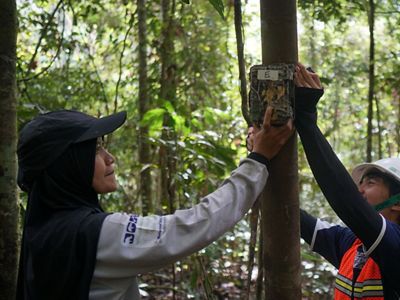
"We share strategic similarities with YKAN," Delicia stated, particularly in contributing to nature conservation and sustainable development through science. The focus of this collaboration is East Kalimantan and other key ecosystems in Kalimantan, which play a crucial role in Indonesia's tropical forest ecosystems. East Kalimantan Province has a forest area of 13 million hectares, home to at least 1,500 species of flora and fauna, some of which are endemic (Atmoko et al., 2018; Dishut Kaltim, 2021). Forests also serve as a source of livelihood for communities, a cradle of knowledge, and a guardian of environmental balance.
As a habitat for vital endemic wildlife, habitat management models that can maintain and provide life resources for various fauna are key to sustaining populations, such as orangutans. In East Kalimantan, the Wehea-Kelay Landscape is one of the wild orangutan habitats. In 2020, an area spanning 532,000 hectares was home to approximately 1,282 orangutans. This diverse landscape also supports at least 77 species of mammals, including 50% from the orders Primates, Carnivora, and Artiodactyla. Additionally, there are 271 bird species and 117 herpetofauna species in the area (Atmoko et al., 2018).
Currently, 23 parties are involved in the collaborative management of the Wehea-Kelay Landscape. These include government bodies, businesses, communities, non-governmental organizations, universities, and research institutions, including YKAN. Private sector participants are mainly holders of Natural Forest Utilization Business Permit (PBPH-HA) concessions certified for Sustainable Production Forest Management, with some holding Forest Stewardship Council (FSC) certifications. Additionally, the Wehea Protected Forest is managed by the Wehea Indigenous Community.
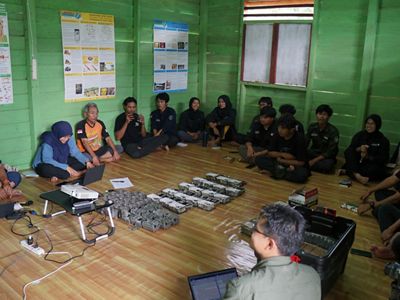
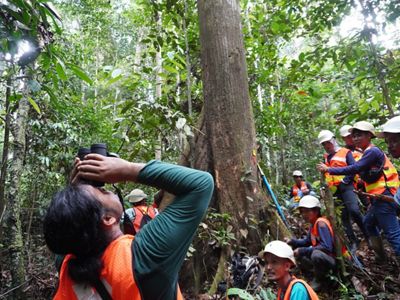
Currently, 23 parties are involved in the collaborative management of the Wehea-Kelay Landscape. These include government bodies, businesses, communities, non-governmental organizations, universities, and research institutions, including YKAN. Private sector participants are mainly holders of Natural Forest Utilization Business Permit (PBPH-HA) concessions certified for Sustainable Production Forest Management, with some holding Forest Stewardship Council (FSC) certifications. Additionally, the Wehea Protected Forest is managed by the Wehea Indigenous Community.
The management model in the Wehea-Kelay Landscape has the potential to be expanded to similar areas in Kalimantan, such as the Menyapa-Lesan and Kutai Landscapes. The collaboration with BRIN aims to research the bioecology and habitat quality of orangutans, Bornean gibbons, mammals, avifauna, and other wildlife, particularly rare and endangered species; disseminate research findings; and develop ecosystem management designs and recommendations for each landscape. One of the studies to be developed focuses on wildlife habitat quality and the development of the Habitat Quality Index (IKH) using bioacoustics and e-DNA technology in the Wehea-Kelay Landscape.
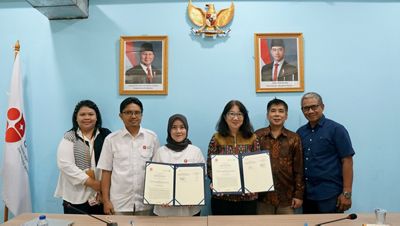
The partnership with BRIN aligns with YKAN’s conservation spirit. "YKAN's programs are developed and implemented using scientific research findings and respecting local values and cultures," Herlina added. She shared that the Wehea Protected Forest has served as a natural research laboratory since 2007. It was designated as a protected forest managed under the customary law of the Dayak Wehea community based on research findings, orangutan discoveries, and local cultural heritage. The collaboration with BRIN will run for five years until 2030. "Strengthening conservation research is expected to serve as a foundation for preserving Kalimantan's forests and their biodiversity," concluded Herlina.
Yayasan Konservasi Alam Nusantara (YKAN) is a scientific-based non-profit organization that has been present in Indonesia since 2014. With the mission of protecting lands and waters as life support systems, we provide innovative solutions to realize the harmony of nature and humans through effective natural resource management, prioritizing a non-confrontational approach, and building a network of partnerships with all stakeholders for a sustainable Indonesia. For more information, visit ykan.or.id.
